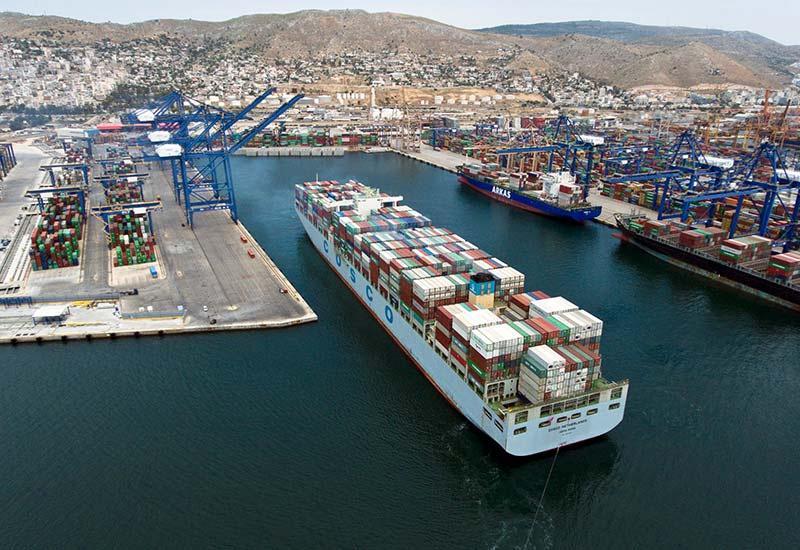BEIJING, July 9 (Xinhua) -- Despite the lingering effect of the international financial crisis and the Greek debt crisis, the loading and unloading volume of the Piraeus port has been increasing in recent years, with the container throughput increasing from 0.88 million in 2010 to 4.05 million in 2017.
Affected by the economic recession and widespread workers' strikes in 2005, many shipping enterprises had to transfer the goods originally docked in this port to other ports, resulting in a slide of 10 percent in cargo throughput.
Located on the southeast coast of Greece, bordering the southwest side of the Aegean Se, Piraeus port is the largest port in Greece and one of the top 10 container terminals in Europe. The inland area of the port reach to the Balkans and maritime transport can cover the entire Mediterranean, Black Sea, North Africa and other surrounding areas.
It is a major port on the 21st century Maritime Silk Road to enter Europe. It can be connected with the Silk Road Economic Belt through the Central European Continental Sea Express Line.
In 2008, in the context of Greece's debt crisis, COSCO Maritime Group won the bid for privatization of container terminals 2 and 3 at Piraeus Port, and obtained its 35-year franchise, which took over the operation of the terminal in 2010.
The move aroused strong concern and controversy at that time. Many voices believed that the Chinese could not manage such ports well and that the employment of local Greek workers would be reduced.
In fact, since COSCO took over the container business of Piraeus port, it has not dismissed workers without reason, but has created at least 1500 local jobs. COSCO has greatly increased its container business and operational efficiency by introducing advanced management technology and experience, thus creating the agglomeration effect of the industrial chain.
After arduous negotiations, COSCO and the Development Fund of the Greek Republic signed an agreement in April 2016. COSCO acquired a 67 percemt stake in Piraeus port for 368.5 million euros. According to the agreement, COSCO will invest 300 million euros in port infrastructure construction in the following five years in addition to transaction expenditure. Through this transaction, COSCO (Hong Kong) became the largest shareholder of the Piraeus port. Meanwhile, this is the first time that Chinese enterprises take over the whole port overseas.
On August 27, 2018, China signed an understanding memorandum (MoU) with Greek government to build the Belt and Road together. Greece became the first developed European country to sign such a memorandum with China. The two sides will cooperate closely to link the Belt and Road Initiative with the strategy of building a regional transport, energy and service hub in Greece, further strengthen the link of facilities, trade flow and financial integration, and continue to push forward the Piraeus port cooperation project.




 A single purchase
A single purchase









